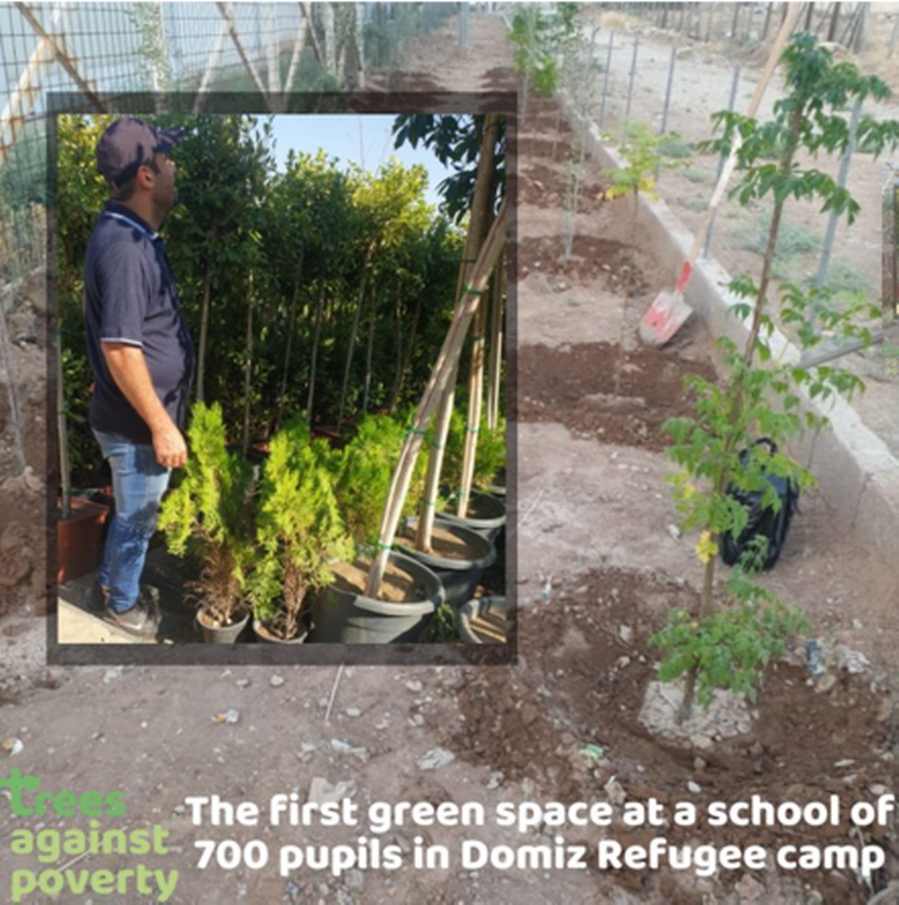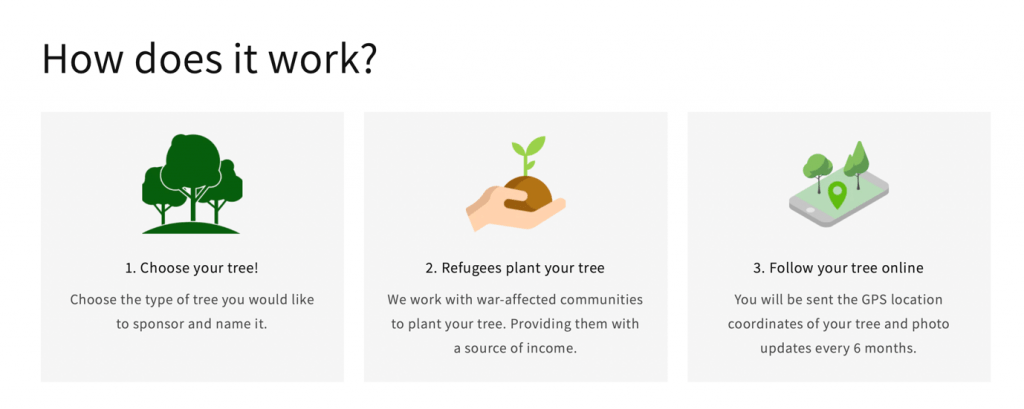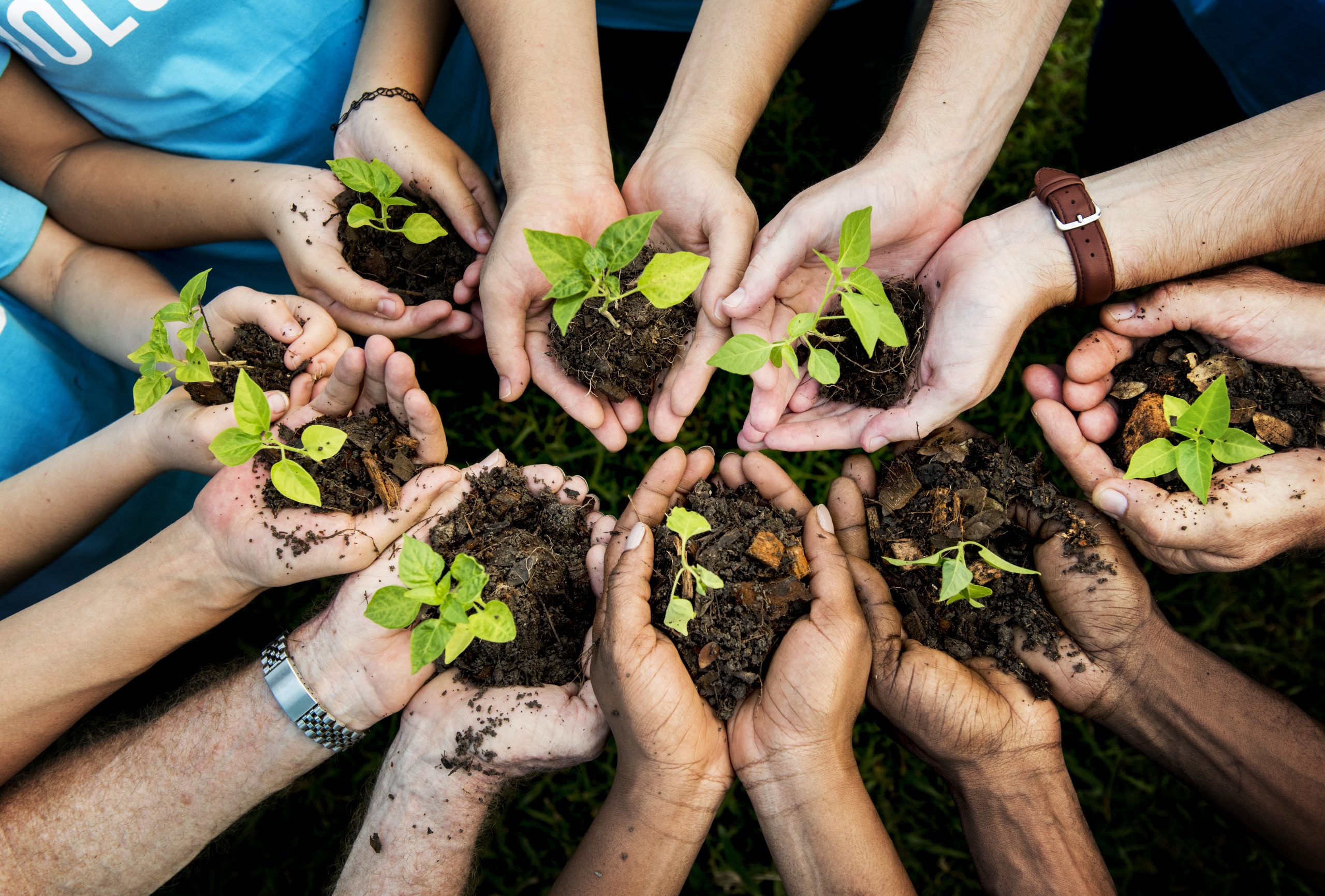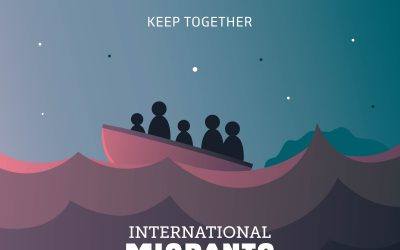
The story of how a Syrian refugee has refocused his life to support the people from his birth country while rebuilding an ecological environment destroyed by over a decade of civil war.
The philosopher Epictetus said, “It’s not what happens to you but how you react to it that matters.” And that sums up Daleel Hagy’s attitude to life. In less than a decade, he has turned around his life as a Syrian refugee to become Trees Against Poverty’s founder while completing his Bachelor’s and Master’s degrees. The focus of Daleel’s life is to support not just the people from his birth country but to help rebuild an ecological environment destroyed by over a decade of civil war.
The war in Syria started in March 2011 and continues with devastating human, economic, and environmental consequences. In July 2022, the UN Human Rights Office reported that 306,887 civilians were killed between March 1, 2011, and March 31, 2021, as a direct result of the conflict. The report also states that many more people have died due to the loss of access to healthcare, food, clean water and other essential human rights. The significant environmental destruction that arises from war may receive less attention, but its long-term consequences on rebuilding a country is enormous.
Daleel, who hails from the Al Hasakeh Province, was a young man with a passion for math and engineering when the war broke out. Morally, Daleel felt he could not in all conscience continue to study while people were dying. Daleel explained that he knew this decision would impact his career options or those he dreamed of at the time, but he knew it was the right decision to make. It was not long before Daleel found himself, like over six million Syrians, a refugee fleeing from violence, destroyed infrastructure and a lack of necessary facilities such as food, water, healthcare and education. Shockingly, almost seven million other Syrians are still displaced within the country.
Daleel fled to Iraq, a country which houses over 260,000 Syrian refugees, mainly from the Kurdistan region in the north. While many integrated into local communities, the refugee camps are still overcrowded with poor living conditions. Daleel lived in one of these camps and tried to complete his studies while working within the camp to help his fellow refugees. Daleel is reluctant to talk about his experiences there. Still, they have left a lasting impression and helped form his goal to support his fellow Syrians and rebuild what was once one of the greenest regions in Syria.
In 2016 Daleel came to the UK and began to build a new life for himself. While he has no family close by, he has integrated himself into UK society and his local community in the London area. Arriving with some grasp of the English language, Daleel completed his Bachelor of Science (Mathematics and Computer Science) in 2019 and is due to complete his Master’s Degree in Mathematics this year.
However, despite being fully integrated into his new community, which he now considers his home, working and making new friends – “I love to meet new people” – the destruction of his country of birth remained at the forefront of his mind. He sought to use his passion for maths and the environment to build a sustainable future for the people of Syria and beyond. And he did that by launching Trees Against Poverty in 2020.
Trees Against Poverty (TAP) is a not-for-profit social enterprise with a dual purpose; to create a sustainable future for our environment and, while doing so, to support underprivileged people. Through TAP, individuals who love the environment and their fellow humans can plant trees overseas and track their growth, knowing that the trees have been cultivated for and by disadvantaged groups, refugees, or internally displaced people.
Daleel has worked out a formula that provides an immediate source of income to people in need through the initial planting and that will sustain them in the longer term as the trees grow and revive the ecological environment. Aside from the economic and environmental benefits of green spaces, there is a psychological benefit. Daleel stressed that access to green spaces can have enormous mental welfare benefits for refugees, often living in dire conditions. And in particular for children who have never seen trees and who may have only ever seen bombed buildings or streets or camp life. All indicators are that the quality of green spaces has a more substantial impact than quantity, so even a small holding of good trees can improve quality of life, social interaction and help establish a sense of belonging in new communities.

One of the greatest highlights so far for Daleel and his colleagues at Trees Against Poverty was creating the first green space in Domiz Refugee camp. It is located at a school for around 700 young pupils and is a green haven for the children and the 70,000 other refugees crowded into this camp. For many of the children attending the school, this is the first time they have seen nature as intended and not covered in dust or debris. And for the sponsors of this remarkable achievement, with the unique GPS coding that Trees Against Poverty places for each tree purchased and planted, they can monitor the growth of their individual trees.
Trees Against Poverty is desperate to keep this wave of rebuilding a community and an environment going. And there are many ways in which companies and individuals can support this initiative. TAP gives companies wishing to offset their carbon emissions the opportunity to achieve a sense of balance by purchasing and supporting the planting of trees. It is also the perfect match for companies with a strong CSR program supporting humanitarian and environmental causes. As individuals, we have seen through the abundance of flowers and plants left outside the Queen’s palaces over the last few weeks that we find solace and comfort in the giving and sharing of plants. What greater way to honour the life of a loved one than to donate a tree in their name to support refugees and to give them a chance at returning to a life of independence for themselves and their families? And if you are thinking of a birthday or Christmas gift for the person who has everything, then planting a tree to help the person that has nothing could not be simpler.

Daleel has a beautiful philosophy of uniting people from around the world. He recognised that leaving your home country is not easy, but he believes that if we stop connecting with one specific country, every country can be our home. And as a refugee or an immigrant, the next time someone asks where you are from, try using Daleel’s response; “Planet Earth”. The world might well become a smaller but better place.
To find out more about how you can support refugees in Syria and rebuild an ecological reserve, go to Trees Against Poverty.







